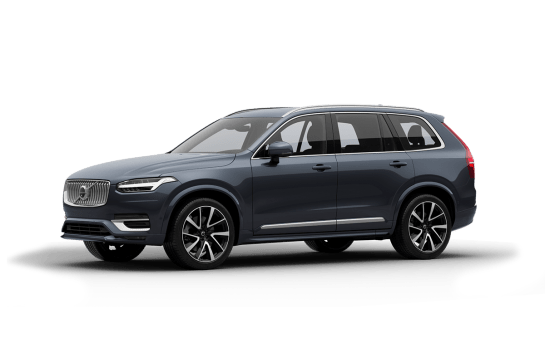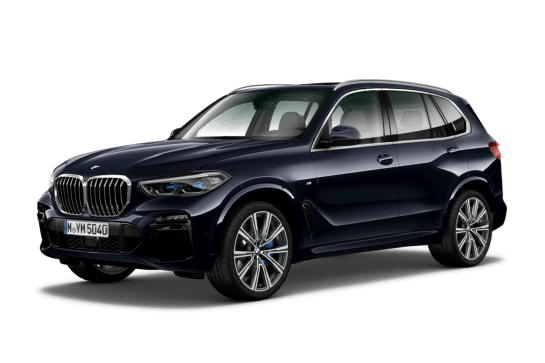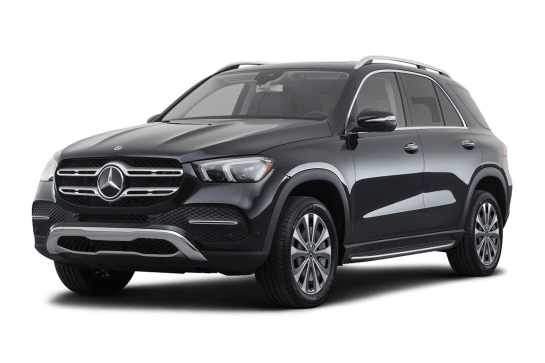
Volvo XC90 VS Jeep Grand Cherokee
Volvo XC90
Likes
- Excellent space and seating options
- Top-notch safety package
- Power of combined engines
Dislikes
- Hard to replicate fuel economy
- Can occasionally feel lethargic
- Some option packages a bit cheeky
Jeep Grand Cherokee
Likes
- Air suspension
- Very capable 4WD
- Smooth and refined PHEV
Dislikes
- Hefty price-tag
- Disappointing electric driving range
- Wheel and tyres not suited to off-roading
Summary
Volvo XC90
With its new XC90 line Volvo has squashed the stereotype that a luxury seven-seater has to be powered by a lusty V8. We put the hybrid T8 to the test.
We live in a world of stereotypes. All black people can dance, all Asians are good at maths, all Americans are loud and brash. Blondes are dumb, girls are not good at sport, police officers live on doughnuts.
By the same token, BMW drivers don’t know how to use an indicator or read a stop sign, Audi drivers are yuppies, Mercedes drivers are arrogant and stuffy, and Toyota drivers are, well, beige.
Oh, and Volvo drivers are tree-hugging, latte-sipping, doily-loving, hat-wearing geography teachers or dentists who drive boring, conservative cars too slowly in the fast lane, and refuse to let people pass.
Like mud, if you fling stereotypes around often enough, they stick and Volvo has had to work hard here to kill the 'just another Volvo driver' leanings.
It has answered in the best way possible with technically advanced, sharp-looking cars that will continue to be on trend for years to come. With the new XC90 line it has also squashed the stereotype that a luxury seven-seater has to be powered by a lusty V8.
We put the hybrid T8 to the test.
| Safety rating | |
|---|---|
| Engine Type | 2.0L |
| Fuel Type | Hybrid with Premium Unleaded |
| Fuel Efficiency | 2.1L/100km |
| Seating | 7 seats |
Jeep Grand Cherokee
Jeep Australia's first plug-in hybrid, the Grand Cherokee 4xe, has arrived at a time when the company’s sales figures need a decent shot in the arm.
Though it’s seemingly spearheading a large and extra-large SUV hybrid push into the Aussie market, with the likes of a Toyota LandCruiser 300 Series hybrid on its way, the marque’s debut PHEV is only available here in the range-topping Summit Reserve spec, and only as a five-seater.
So, does the 4xe have enough of a jump on any large SUV hybrid rivals – including a rumoured but postponed Ford Everest hybrid – and is it enough to give the brand a much-needed boost?
Read on.
| Safety rating | |
|---|---|
| Engine Type | 2.0L |
| Fuel Type | — |
| Fuel Efficiency | 3.2L/100km |
| Seating | 5 seats |
Verdict
Volvo XC907.9/10
This hybrid XC90 is on point with all that Volvo’s flagship offering is renowned for – safety, performance, technology and style - and allows you to give impetus to your environmental ideals too.
The D5 Inscription remains my favourite in the new XC90 range because of its overall verve but no doubt the Twin Engines will find equal favour especially amongst buyers who spend a lot of time in traffic covering short distances.
Jeep Grand Cherokee7/10
A wise man* once said "Being first can sometimes feel like being wrong" and perhaps that's how it is with the 4xe, but at least Jeep Australia is giving the large SUV hybrid realm a good ol' try.
* Former CarsGuide Big Kohuna, Glen Knowles.
The company's first plug-in hybrid, the Grand Cherokee 4xe, is not perfect by anyone's standards, however, it is a definite move in the right direction.
It's a quiet and refined drive, it retains the brand's renowned 4WD capability, and even its hefty price-tag likely won't dissuade Jeep loyalists from giving it a go.
Design
Volvo XC90
What’s not to love about a large, chunky SUV with a no-nonsense stance and bold demeanour? One where the sloping lines and angles don’t mess with the feeling of understated efficiency and the sizeable grille and 'Thor's hammer' headlights are complementary rather than a distraction?
That quiet confidence is mirrored in the interior space, too, where the minimalist design brief leaves an uncluttered dash and just a couple of buttons to interrupt a smooth and tasteful canvas.
The cabin really is a beautiful place to be with its large digital driver display and, in our test car, a stylish mix of leather, wood and smart plastics proving to be a winning combination.
Supportive, luxurious sport seats whip up the comfort level and electrical adjustment means it is super easy to settle on a suitable driving position.
Not as simple, however, was getting the side mirrors to stay in their set positions, the pesky things assuming a shape shifting personality of sorts every time you switch off the engine. There is evidently some hoodoo combination to get them to behave but as I found with the S90 that particular spell does not feature in my extensive repertoire.
Jeep Grand Cherokee
Practicality
Volvo XC90
Seven-seaters are a boon for large and growing families, for people who are often carrying the kids’ friends, or if you just want some extra space. The XC90 has the latter in spades with plenty of room for long legs and big heads although the third row is naturally better suited to children instead of adults.
Comforts back there in the third row include air vents and cup holders as well as decently-shaped seats.
Oh, and much greater odds of being able to gulp down those dodgy marshmallows you found at the bottom of the swimming bag before your mother spots you.
There are similar offerings for passengers in the second row – climate control and storage I mean, not marshmallows – with integrated booster seats and two ISOFIX points also adding shine.
The outer seats in the second row slide forward and tip over to facilitate access to the back while both the second and third rows fold flat, individually if need be, to increase the load compartment.
The boot features a pair of sturdy shopping bag hooks, too, which may not raise an eyebrow in your world but are invaluable if you want to arrive home with the box of eggs intact and not crying over spilt milk.
Jeep Grand Cherokee
The Jeep Grand Cherokee Summit Reserve 4xe PHEV retains the regular model’s level of functionality but adds a reasonably classy touch to everything.
All seats offer adequate comfort, support and room.
There are plenty of storage spaces, cupholders etc, and charging points - two USB-A and two USB-C plus a 12V socket in the front and two USB-A and two USB-C plus a 230V point in the back.
Controls are generally easy enough to locate and operate although some buttons are positioned in awkward places – including drive-mode buttons under the steering wheel – and it sometimes takes a few finger-stabs at the multimedia touchscreen to get to where you want to go in the operating system.
In terms of packability, the rear cargo area has a listed 1067 litres of space, and, with the second row folded and out of the way, that space opens up to 2004 litres.
Price and features
Volvo XC90
You have a choice of three XC90s – a diesel, petrol and electric/petrol hybrid – each available in three trim levels.
With a price tag over $120,000, our hybrid Inscription will take more than spare change to own but does come with a fairly generous inclusions list.
Standard fare features seven seats, tri-zone climate control, 9.0-inch tablet-style multimedia colour touchscreen with 12.3-inch digital driver display, Bluetooth connectivity, USB ports and 12 volt connections, auto lights and wipers, powered tailgate, reverse camera and sensors and an impressive suite of safety systems.
Our car was also equipped with a $3000 'Technology Pack' (Apple CarPlay, 360-degree camera, head-up display, DAB radio tuner) and the $8000 'Premium Pack' with Bowers & Wilkins audio, air suspension and heated seats for front and middle row passengers.
Am I the only one thinking it's a bit stingy to expect you to hand over more for these features in car that already costs in excess of $100,000?
Jeep Grand Cherokee
The five-seat Jeep Grand Cherokee Summit Reserve 4xe PHEV has a MSRP of $129,950 (excluding on-road costs).
Standard features include a 10.1-inch multimedia system (with Apple CarPlay and Android Auto), a 10.25-inch digital instrument cluster, 19-speaker audio system, quilted Palermo leather-trimmed seats, air suspension and 21-inch alloy wheels.
It also has a heated steering wheel, 12-way power-adjustable seats and four-way power lumbar adjustment with memory for driver and front passenger, driver and front passenger seat massage function and heated and ventilated seats (driver, front passenger and rear outboard passengers).
A Mode 2 charging cable is also included.
An 'Advanced Technology Group' pack is available as a $5500 option and that includes a head-up display, a 10.25-inch screen for the front passenger, wireless phone charger, and night vision camera.
Exterior paint options include 'Bright White', 'Diamond Black', 'Silver Zynith', 'Velvet Red', 'Baltic Grey', 'Rocky Mountain', 'Midnight Sky' and 'Hydro Blue'.
Under the bonnet
Volvo XC90
Naturally, there is much to be said about a V8 engine, as available in previous XC90s; superlatives in the main, but the combination 'twin-charged' four in our T8 is hardly struggling for words of praise either, especially from buyers who are not only environmentally aware but have the means to add action to ideology.
This plug-in hybrid is powered by a supercharged and turbocharged 2.0-litre four-cylinder petrol engine that delivers 235kW/400Nm to the front wheels, blended with a twin-battery 65kW/240Nm electric motor on the rear axle, that improves the economy and range of Volvo’s signature offering.
They can be used alone or in combination, with the torque figures and actual performance varying accordingly. Volvo suggests that on electric power only, you would be good for 30km, perfect for average city commutes, although we couldn’t muster more than 24km during our test week.
A charging connector that suits most household power sockets is a handy advantage, meaning you can recharge in your garage, or at work – anywhere really, that you can sidle up to an electric socket. Charge time is usually around four hours.
The 2.0-litre petrol engine with its turbocharger, and supercharger, and of course superpowers (made that last one up), is a handy unit given the XC90’s bulk, and has a willing accomplice in form of a silky smooth eight-speed transmission.
Jeep Grand Cherokee
The Jeep Grand Cherokee Summit Reserve 4xe PHEV has a 2.0-litre four-cylinder turbo-charged petrol engine, two electric motors (one on each axle) and a 17.3kWh battery.
Combined engine and electric outputs for power and torque are 280kW and 637Nm, respectively. The 4xe has it over any of its stablemates equipped with the 3.6-litre Pentastar V6 petrol engine because that yields 210kW and 344Nm.
The 4xe has an eight-speed automatic torque-converter transmission and regenerative braking.
Drive modes include 'Hybrid' (with combined engine and electric motor providing “maximum instant torque and impressive acceleration”, according to Jeep), 'Electric' (“zero emissions”) and 'eSave' (aims to save battery power).
There are a few options available when it comes time to charge the 4xe.
The 4xe vehicle has a Mode 2 charging cable so you can charge it at home in less than 10 hours, according to Jeep.
With a full charge, the 4xe has a claimed driving range, on electric charge alone, of 52km.
Jeep reckons a Mode 3 (wall box) single-phase electric vehicle charger will fully charge the 4xe in less than three hours.
If out and about and looking for a charge, a 4xe driver can use the onboard 'UConnect' system to locate an appropriate public charging station.
Efficiency
Volvo XC90
Well, technically, in automatic hybrid mode you should be, if official figures are to be relied upon, returning figures of 2.1L/100km.
Real life rarely works like that though, with our readings closer to 7.6L/100km. Still credible for a 2.3 tonne SUV, although interestingly, we managed 6.0L/100km in the 2.0-litre diesel.
Jeep Grand Cherokee
As mentioned, the 4xe has a listed electric-only driving range of 52km.
On our official test day, we drove just under 50km on a full electric charge and then the rest of the trip was courtesy of the good ol’ petrol engine.
Jeep's official figure for the combined cycle is just 3.2L/100km, but that's predicated on keeping the hybrid battery charged at all times. On fuel-only we recorded 11.6L/100km.
The 4xe has a 72-litre fuel tank (you need 95RON premium to fill it), so going by that on-test fuel-consumption figure, you could reasonably expect to get a driving range of about 620km out of a full tank.
Add an approximate electric range of about 50km on a full charge to that figure and you have a total estimated driving range of 670km.
Driving
Volvo XC90
Thanks to semi-autonomous technology, this XC90 can pretty much drive itself, although taking your hands off the steering wheel for more than 20 seconds will very quickly remind you of the law.
So, provided you touch the steering at those regular intervals and the road is clearly marked, this car can stay within its lane in city confines, follow confidently behind the car in front, braking, accelerating and stopping when necessary.
It is less confident on narrower poorly marked or inconsistently edged roads, but that doesn’t detract from the wow factor, and in all honesty has more to do with our infrastructure problems than Volvo’s technical wizardry.
The thing is that even though this car can carry out most of the mundane functions of driving, it has such a sense of ease about it that you will want to drive yourself.
In slow, stop-start city commuting the electric engine comes into its own, allowing you to shuffle along without troubling its petrol wing man. You have to remember to recharge when you get to the office or back from the school run, however, or it sort of defeats the purpose.
The petrol unit, with a more than competent eight-speed transmission to facilitate performance, sticks fastidiously to the task, although it can sometimes feel a tad lethargic.
It is hard to find fault with the petrol and electric engines working in unison, a combined peak torque of 640Nm giving you all the oomph you need.
The twin engine XC90 is nicely balanced, easy to manoeuvre and an excellent cruiser. You can occasionally feel its weight around tight corners but that is to be expected.
The brakes took a bit of getting used to as the car initially uses regenerative braking to capture energy, but then stops quickly as speed drops. It's a bit of a surprise, but easy enough to accommodate.
Jeep Grand Cherokee
We’re all time-poor, right? So, why should I take up your time and rattle on about the 4xe for a thousand words when I can get the essence of it across to you, the reader, in a few sentences? Call me, Mr Thoughtful.
This is generally a big, quiet and refined, easy-steering large SUV, but it feels bulky at times and tends to be quite fussy on irregular surfaces, exhibiting a jittery ride on even brief sections of light corrugations on dirt tracks.
The 4xe’s PHEV set-up is smooth and highly responsive on-road and you can switch between the aforementioned drive modes to suit the circumstance.
Driving range on electric only is listed as 52km. I only recorded a total distance of just under 50km, and it’s a very quiet and smooth drive while relying on electric power.
It regenerates power rather quickly down big hills and via braking, but we’d exhausted all electric charge by the time we’d reached our 4WD test track.
As expected, this Grand Cherokee tackled every off-road challenge without any strife.
The air suspension, set to full off-road height, is a bonus.
Our 4WD test track consists of difficult set-pieces, including one small steep rocky hill that I’ve seen heavily modified vehicles struggle to conquer and, to the Jeep’s credit, it climbed the incline, no sweat.
The 4xe’s efforts were only ever hampered by its 'all-season' Continental CrossContact tyres (275/45R21) which are much better suited to blacktop driving and the fact the 4xe costs upwards of $129,950 and I didn’t want to risk any damage to it.
The 4xe has a listed wading depth of 610mm but our test track was dry so I never had the chance to do any water crossings.
The Grand Cherokee has a solid enough rep as a towing vehicle but, take note, the 4xe is rated to tow 2722kg.
Safety
Volvo XC90
It is no secret that safety features are one of the foundations of the Volvo ethos. It was after all Volvo engineer Nils Bohlin who invented the three-point seat belt in 1959 which turned out to be the most important safety device ever created.
Instead of cashing in on the patent, and in keeping with their guiding principle of safety, Volvo shared it with other car manufacturers which has of course resulted in untold lives being saved.
This XC90 boasts other marvellous safety inventions, including blind spot monitoring, lane departure warning, AEB, pedestrian detection and a rear collision system. An extra $2600 will give you the 'Intellisafe' system which includes adaptive cruise control, semi-autonomous 'Pilot Assist' and lane keeping assist.
Jeep Grand Cherokee
The Jeep Grand Cherokee Summit Reserve 4xe PHEV has the maximum five-star ANCAP safety rating from assessment this year.
Safety gear includes AEB with pedestrian detection, blind-spot monitoring with rear cross-traffic alert, adaptive cruise control, lane-keep assist, driver monitoring, traffic sign recognition, intersection collision assist, and a surround-view parking camera.
The Summit Reserve spec brings with it 'ParkSense' parallel and perpendicular park assist and (low-level autonomous) 'Active Driving Assist'.
It has eight airbags including front, side, and knee (for driver and front passenger), sides (for second-row passengers) and full curtain airbags.
Ownership
Volvo XC90
Warranty is three year/unlimited kilometres with free roadside assist for that period.
A 'SmartCare' service program gives you fixed-price servicing for up to five years/75,000km for $4075.
Jeep Grand Cherokee
The Jeep Grand Cherokee Summit Reserve 4xe PHEV has a five-year/100,000km warranty and a lifetime roadside assist service.
Servicing is set at 12-month/12,000km intervals and capped price servicing keeps what you pay for each appointment at $399 for the first five.
































